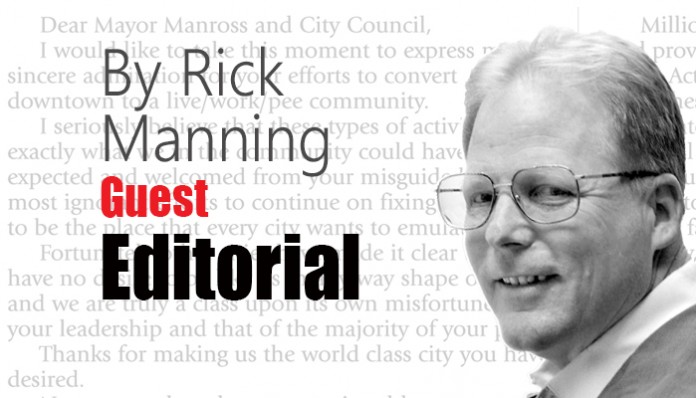America’s media monopolies pose a threat to democracy. Most people know that President Donald Trump has engaged in a very public war of words with a variety of biased media outlets, like CNN, over their advocacy journalism which shreds any semblance of objectivity.
In the waning weeks of the 2016 campaign, the President regularly went directly to the voters bashing CNN and other outlets for presenting fake news designed to influence the election outcome. This recognition of the power of the media monopolies over what the people learned about him and his campaign led the President to unequivocally state on Oct . 22 in Gettysburg, Pennsylvania that news organizations were trying to, “suppress my vote and the voice of the American people.”
President Trump recognized the impact that the conglomerate media companies were having on the electorate when in the same Gettysburg speech, he equated the consolidation of media into giant corporations by citing the proposed merger between AT&T and Time Warner, “As an example of the power structure I’m fighting, AT&T is buying Time Warner and thus CNN, a deal we will not approve in my administration because it’s too much concentration of power in the hands of too few.”
Trump was right in October of 2016, and now his Justice Department has the power to stop the AT&T and Time Warner merger in its tracks, and that is exactly what they should do.
The continued consolidation of media exposes the obvious problem where one entity can impose a political or cultural point of view on society as a whole simply by making it normal, acceptable, or seemingly outside the mainstream, on every entertainment outlet that people watch.
This inordinate power to control the information that flows onto our computers and through entertainment and advocacy news outlets that the consolidation of media has created highlights the dangers of allowing the AT&T-Time Warner merger to proceed.
Currently, AT&T owns the number 1 Pay TV company (26M subscribers), the number two wireless company with 134 million subscribers, the number three Internet Service Provider with 16 million subscribers and was the world’s largest telecommunications company by revenue with $163 billion in revenue in 2016 alone.
For its part, Time Warner owns CNN, one of the world’s largest news networks, three of the top five general entertainment cable networks in TBS, TNT and Adult Swim, HBO – the leading premium cable provider and the number two movie studio by box office revenue in Warner Bros.
If approved, AT&T’s powerful reach into consumer’s televisions, computers, and mobile devices means they could easily increase the power of their own offerings – like CNN. They could also make it more difficult or impossible for consumers to find conservative or more balanced news alternatives. The last thing we need is a corporate giant that makes CNN and other networks it owns even more powerful.
President Trump clearly stated that under his administration the AT&T/Time Warner merger would be stopped because it was not in America’s interest. Now, he needs to keep his promise by telling his Justice Department to kill the deal as a bad, bad deal for free speech in America.
Rick Manning is the President of Americans for Limited Government.





